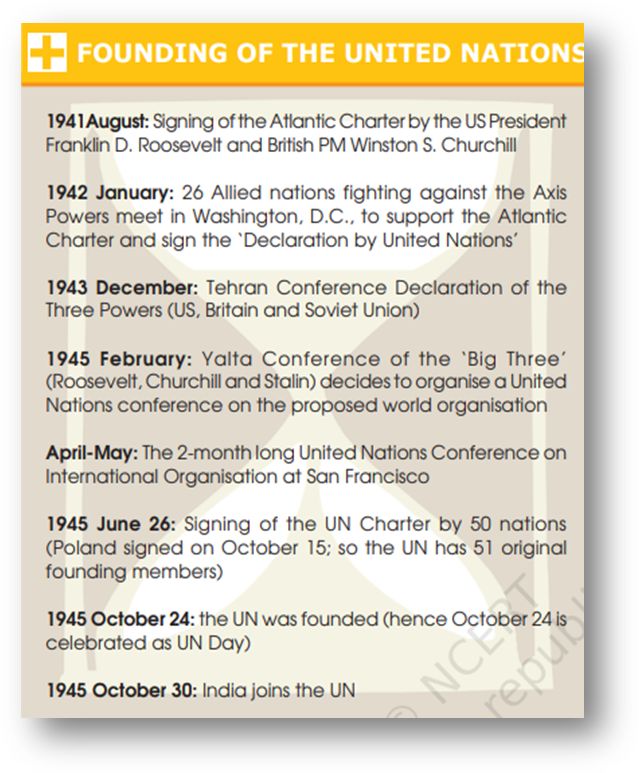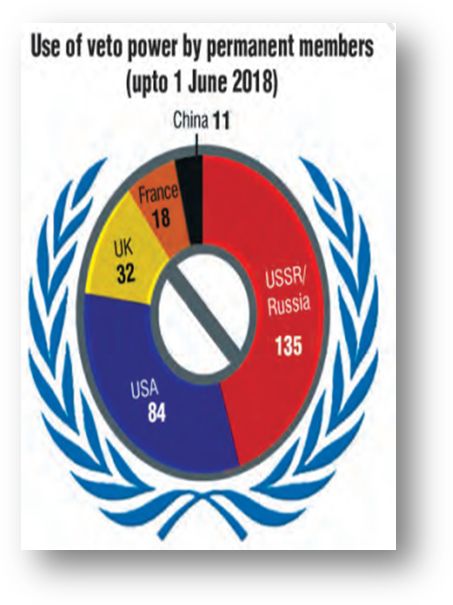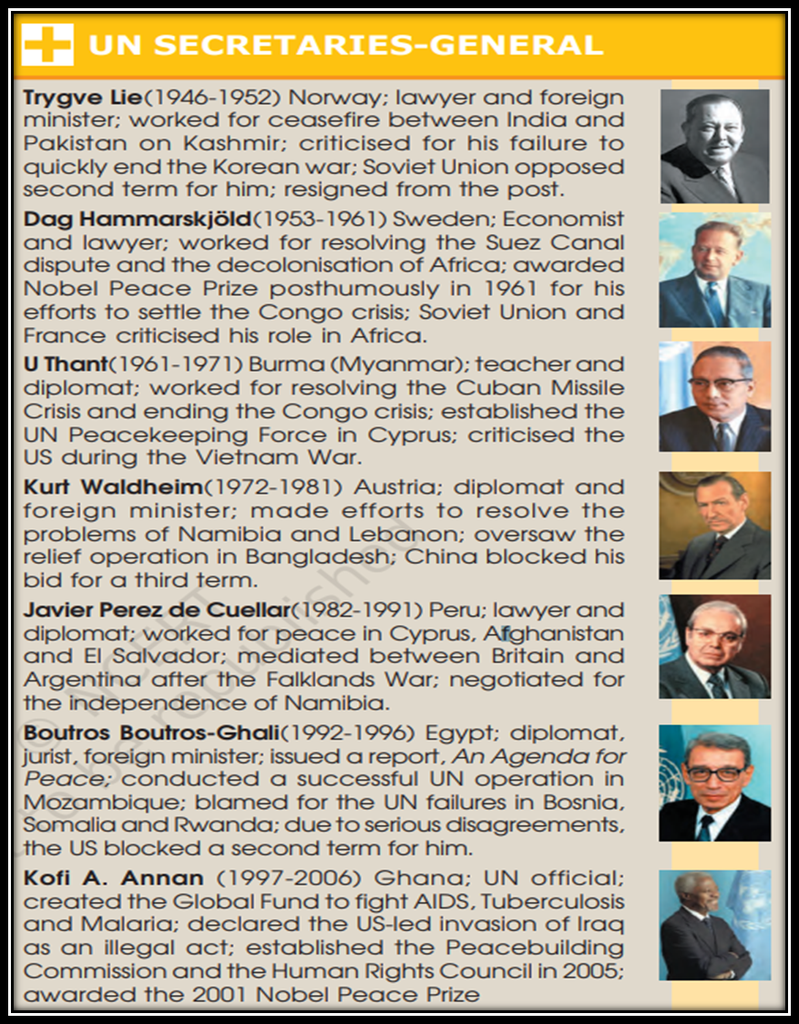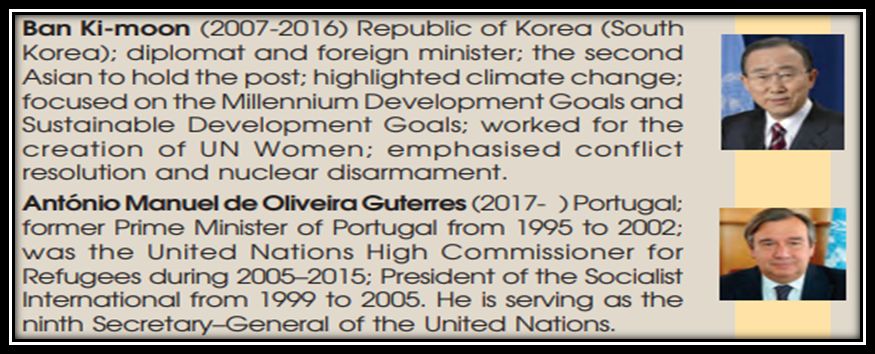- Books Name
- Education Vision Political Science Book
- Publication
- PathSet Publications
- Course
- CBSE Class 12
- Subject
- Political Science
REFORMS OF STRUCTURES AND PROCESSES
- In 1992, the UN General Assembly adopted a resolution. The resolution reflected three main complaints:
-
- The Security Council no longer represents contemporary political realities.
- Its decisions reflect only western values and interest and are dominated by a few powers.
- It lacks equitable representation.
-
- On 1st January 1997, the UN secretary general Kofi Annan initiated an inquiry into how the UN should be reformed
- Criteria for selection of new permanent and non-permanent members of UN? was proposed. The criteria being:

- A major economic power
- A major military power
- A substantial contributor to the UN budget
- A big nation in terms of its population
- A nation that respects democracy and human rights
- A country that would make the Council more representative of the world’s diversity in terms of geography, economic systems, and culture.
- Governments saw some advantages in some criteria and disadvantages in others depending on their interests and aspirations.
- Many issues were raised regarding it.
- In the Security Council there are five permanent members and 10 non-permanent members.
- The charter gives the permanent members a privileged position of permanency and the veto powers.
- The non-permanent members serve for only two years at a time and give away that period to new elected members.
- A country cannot be re-elected immediately after completing a term of 2 years.
- The non-permanent members are elected in a manner so that they represent all the continents of the world.
WHAT IS VETO POWER?
-
-
- In taking decisions, the Security Council proceeds by voting.
- All members have one vote.
- The permanent members can vote in negative manner so that even if all the other permanent and non-permanent members vote for a particular decision, any permanent members negative vote stall the decision.
- This negative vote is the veto.
-
WAS VETO POWER ABOLISHED?
-
-
- Many perceived that veto power was no longer required.
- The permanent members are unlikely to agree to such a reform where the privilege of veto power will be taken away from them.
- It was believed that the world was not ready for such a radical step even though the Cold War was over.
- But without the veto, there is danger that the great powers would lose interest in the world body, and that they would do anything outside and without their support and involvement the body would be ineffective.
-
Jurisdiction of the UN
- The UN completed 60 years of its existence, the heads of all the member states met in September 2005 to celebrate the anniversary and review the situation.
- And they decided to take care of few steps, steps are as follows:
-
- Creation of peacebuilding Commission
- Acceptance of the responsibility of the international community in case of failures of national governments to protect their own citizens from atrocities.
- Establishment of Human Rights Council (operational since 19 June 2006)
- Agreements to achieve the Millennium Development Goals
- Condemnation of terrorism in all its forms and manifestations
- Creation of democracy fund
- An agreement to wind up the Trusteeship Council
-
- Many questions were raised regarding the steps to be taken.
- Questions like- what should the peacebuilding Commission do? There are many numbers of conflicts all over the world in which all should it intervene in? etc.



 PathSet Publications
PathSet Publications
